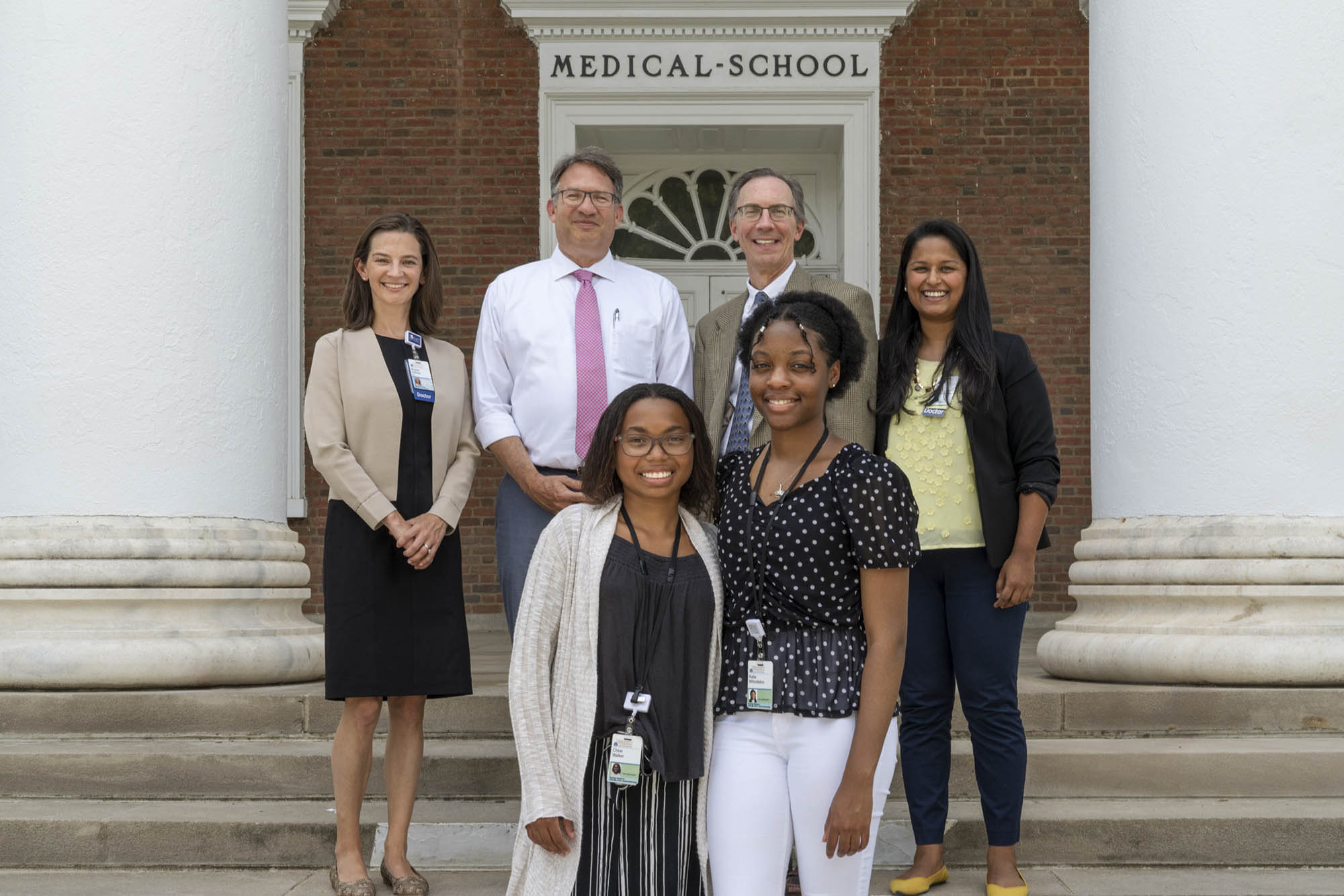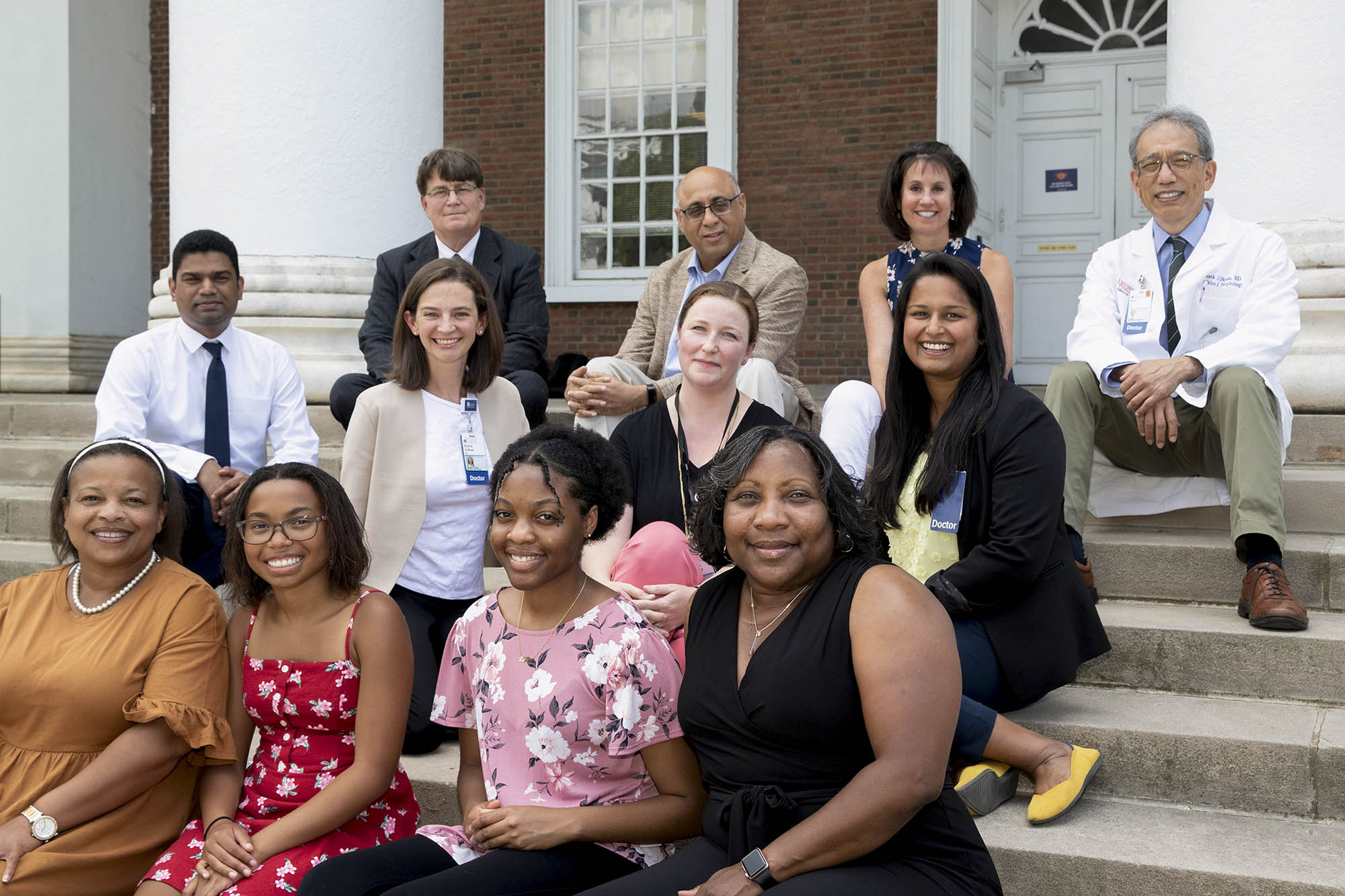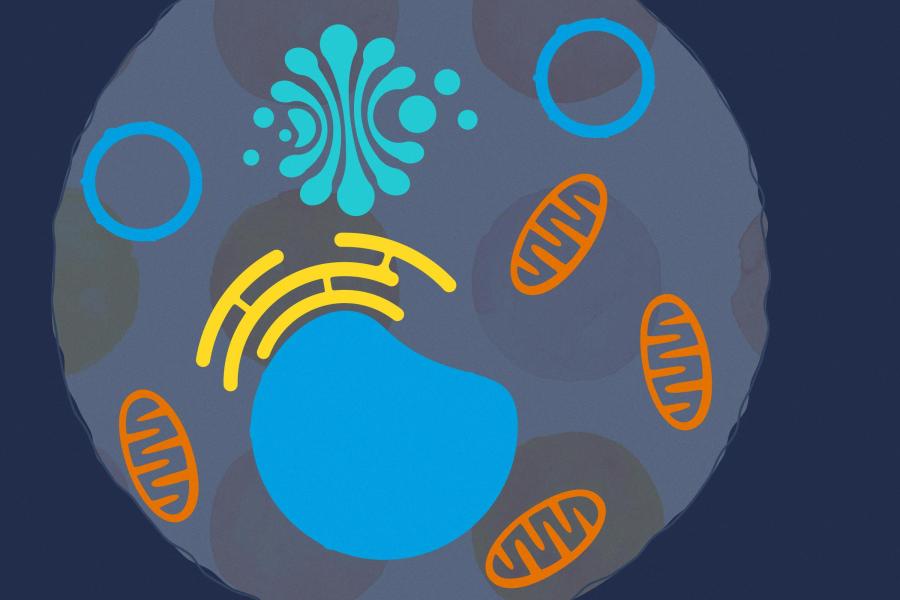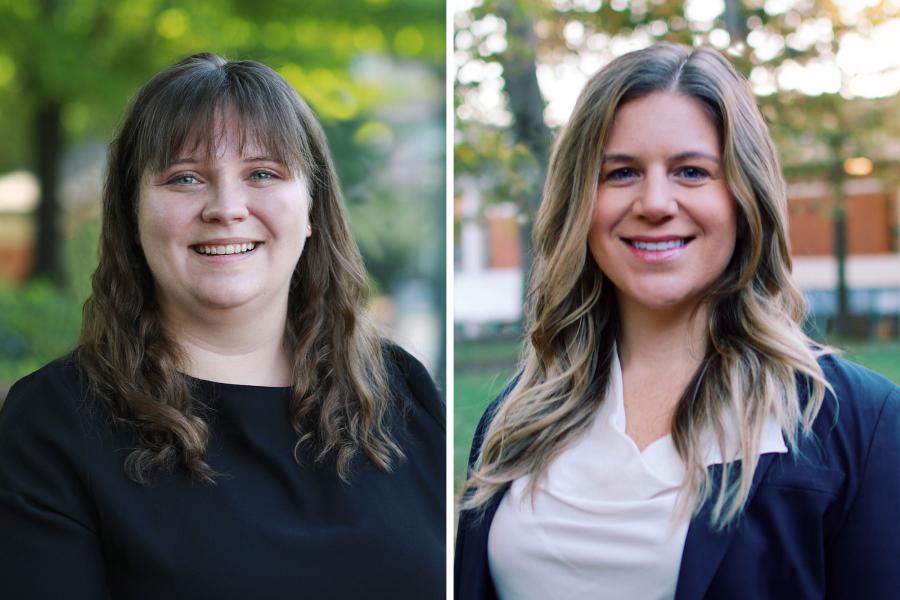There probably aren’t too many second-graders who could tell you what an OB-GYN is, but KaTia Whindleton was well-versed at the time. Whindleton had her father, in part, to thank for that.
“My dad used to talk about how much he loved babies,” Whindleton said. “We would be in the store or something and he’d be like, ‘Oh my gosh – look at the baby over there!’”
Whindleton started appreciating the adorableness as well, but she also became intrigued by the entire birth process – so much so that she looked up what kind of doctor delivers babies. And when she learned that it was an obstetrician-gynecologist, she made up her mind to someday go into the profession.
“I’ve stuck with it ever since, because nothing has ever grabbed my interest like the thought of being an OB-GYN,” said Whindleton, now a rising senior at Monticello High School.
Whindleton has been in Monticello High’s Health and Medical Sciences Academy – which features a curriculum for students interested in health care careers – since her freshman year.
This summer, Whindleton took another step toward her dream by taking part in the University of Virginia School of Medicine’s Summer Opportunities in Academic Research pilot program.
The program, known as SOAR, seeks to encourage high school students of color in the Charlottesville area to pursue careers in science through education and mentoring in biomedical research.
Each SOAR scholar – this year there were two – is paired with a research mentor as they explore various corners of science, technology, engineering and math.
The goal of the eight-week course is to provide participants with a broad introduction to biomedical research and new knowledge and skill sets that they can use in multiple research domains.
“It’s not the typical work we get in high school where there are a lot of papers and everything is by the books,” Whindleton said. “The SOAR program has provided direct exposure. It lets us into the labs, lets us shadow people who do science, lets us talk to a variety of different doctors.
“We’ve talked to pediatricians. We’ve talked to surgeons. There is just a whole variety of exposure, which I think is really good, because even though I have a plan to become an OB-GYN, I could be exposed to something completely different and decide to take a new career pathway.”
The program is directed by two senior faculty mentors, Dr. Karen Johnston and Dr. Don Brown, who are the leads of the integrated Translational Health Research Institute of Virginia, known as iTHRIV; and two junior faculty mentors, Dr. Sana Syed and Dr. Brynne Sullivan, who are both clinician-scientists and graduates of the iTHRIV Scholars program.

Monticello High School students Chloe Walker, front row left, and KaTia Whindleton, along with Drs. Brynne Sullivan, Howard Goodkin, Reid Adams and Sana Syed. (Photo by Sanjay Suchak, University Communications)
“We could not be more excited about our time with KaTia and Chloe,” Johnston said. “They are such bright and energetic high school students and their excitement about medicine and engineering is infectious. Keeping such promising young people in scientific careers and specifically health-related research careers is a priority for iTHRIV. The SOAR program allows us to meet and support young talent like KaTia and Chloe. We can’t wait to see them blossom in science and medicine careers.”
Heading into the program, Chloe Walker, also a rising senior at Monticello High, was thinking about a future career in biomedical engineering or data science, but has found there are other paths that interest her more.
“Meeting all the doctors every week, things have shifted a little,” said Walker, who is also in MHS's Health and Medical Sciences Academy. “Right now, I’m pretty interested in anesthesiology.
“Being in SOAR has opened my mind about all these different options. There are so many things and so many specialties.”
Added Whindleton: “A lot of the doctors have told us to keep an open mind when we’re going through school. I’ve wanted to be an OB-GYN since elementary school, but they say, ‘have an open mind and make sure you consider everything carefully,’ because I could be passing up opportunities that I love doing by being so focused on that one pathway. I really appreciate them saying that.”
Walker’s lab research mentor has been Dr. Mark Okusa. Every afternoon she visits his nephrology lab, where she’s learned how to take photos with high-tech microscopes and observed experiments involving kidney tissue proteins.
Walker even got to conduct her own experiment.
“I diluted a known protein to test my pipette skills, which was really fun,” she said. “I had to get a certain measurement of this one solution and put it into another one in order to slowly dilute the protein.”
A typical day is broken into didactics and discussions in the morning and research engagement and mentor labs in the afternoon.
“I think a theme in the discussions has been the general message of, ‘You can do it,’” Sullivan said. “It can be really daunting thinking about how long a career in medicine takes and what the life of a physician looks like and how to find balance.
“Being able to hear from multiple people as they look down the path of this intimidating adventure is helpful.”
At the end of the program, students give presentations summarizing their summer research and are encouraged to submit articles to the Journal of the American Medical Association.
SOAR is a direct extension of an immensely successful grass roots crowd-fundraising campaign Syed helped lead last year to help support the iSTEM program in Charlottesville City Schools.











